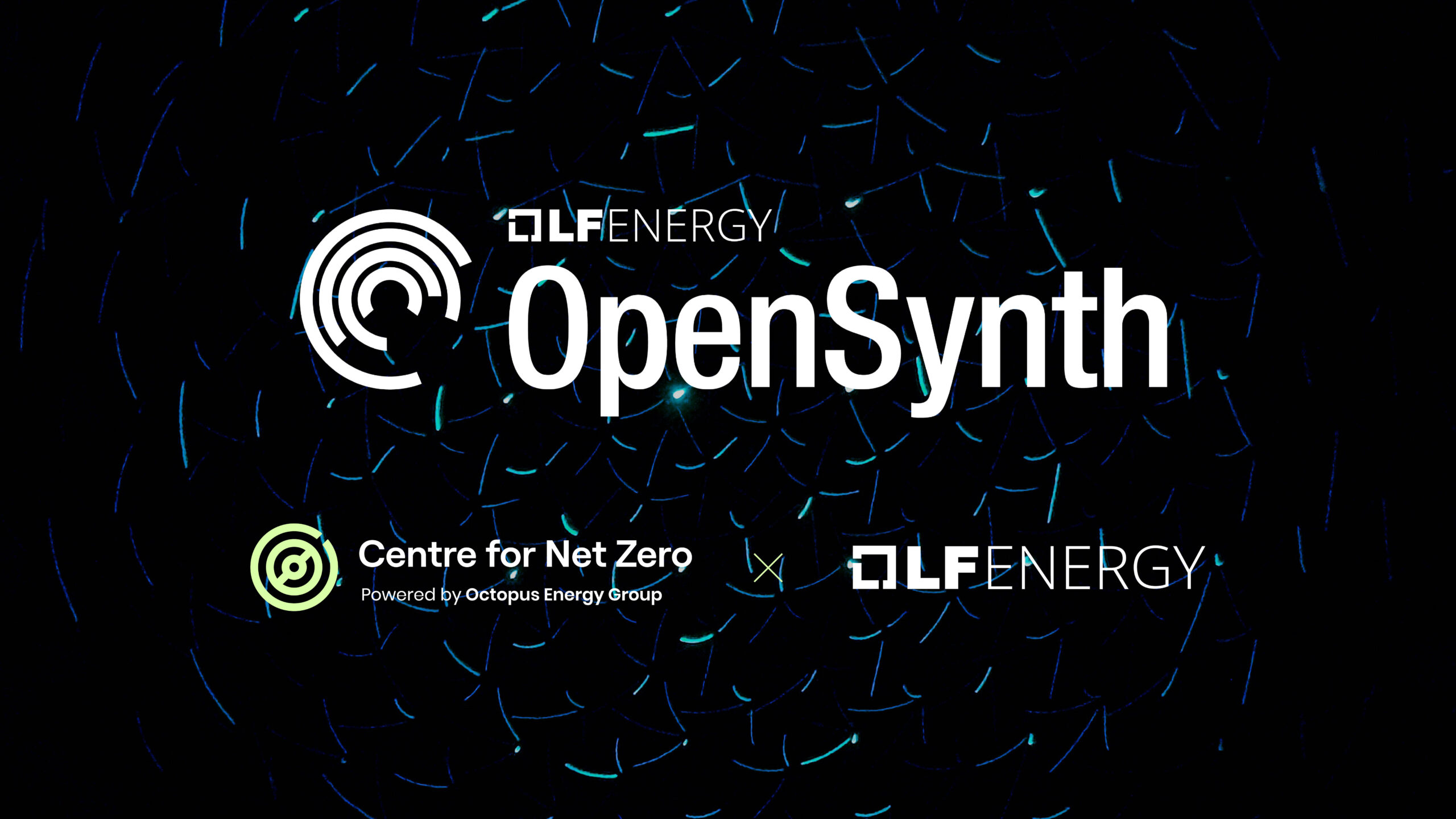Introducing ‘OpenSynth’, powered by Centre for Net Zero and LF Energy
Authors: Gus Chadney, Data Lead & Sheng Chai, Senior Data Scientist, Centre for Net Zero
Access to smart meter data is essential to rapid and successful energy transitions – but it is highly restricted due to privacy protections. Rather than unlocking raw smart meter data through existing mechanisms, we’re generating synthetic data to achieve rapid, widespread and global access to smart meter datasets.
We’re delighted to be partnering with Linux Foundation Energy on OpenSynth, a new, global open community designed to democratise synthetic data, to accelerate the decarbonisation of global energy systems.
Smart meter data is hard to come by, largely as a result of privacy protections. We’re widening its access, by bringing the synthetic data revolution to the world of energy.
Trained on real world data, synthetic data created by generative AI preserves patterns seen in real data whilst being completely artificial. This makes it an ideal proxy for the original data and can be shared widely and easily, powering diverse use cases without encountering privacy issues that come with real data. It is already transforming the way some industries share and use datasets, particularly those that contain sensitive information or personal data – such as financial services and healthcare.
We believe there’s significant potential for the rapid and global use of synthetic energy demand data across the energy landscape, to accelerate net zero action. As we transition to energy systems powered by a greater share of variable renewables, we need better real time optimisation of demand and supply. Understanding how consumer behaviour and demand is changing, particularly as households adopt low carbon technologies, such as solar PV, heat pumps, electric vehicles and batteries, is critical to the realisation of greener, more affordable energy systems.
OpenSynth is a community that allows both holders of raw smart meter data around the world to generate and share synthetic data, and for community members and energy researchers to generate, improve and share algorithms.
The smart meter data that Centre for Net Zero will share through OpenSynth won’t just be synthetic, but contain important metadata such as property type, EPC rating and low carbon technology (LCT) ownership, including heat pumps, electric vehicles and solar PV. This will enable better understanding of behind-the-meter changes and inform the ongoing development of future demand profiles for different demographics.
What are the potential use cases for the data we’re sharing via OpenSynth? Immediate applications exist today, including in building regional, national and global ‘digital twins’ of electricity grids, creating consumption profiles for future populations that own more electric vehicles, developing scenario plans – including strengthening grid resilience during extreme weather conditions – and so much more. As with many emerging technologies, they’ll be opportunities to use synthetic smart meter data in ways we haven’t yet discovered.
Our initial focus for the OpenSynth community includes:
- Defining what comprises ‘good’ synthetic data – to include how synthetic data in energy might be evaluated for common concepts such as privacy, fidelity and utility
- Developing an open repository for synthetic smart meter data and algorithms
- Encouraging community members to contribute data by using our initial algorithms
If you’re interested in receiving updates on OpenSynth, feeding into foundational work and/or becoming a community member, please join the mailing list here. We will also host a launch event in London on 9 April at 5:30pm – for more information and to register for free, visit our event webpage.
